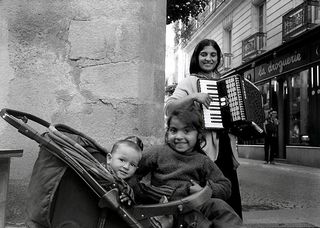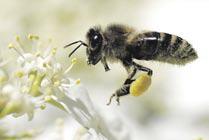European Union supporters in Latvia and Estonia expressed concern Thursday about a new survey pegging their countries as the most EU-skeptical in Europe
Published:
4 August 2003 y., Monday
European Union supporters in Latvia and Estonia expressed concern Thursday about a new survey pegging their countries as the most EU-skeptical in Europe—findings that come just two months before both Baltic states hold referendums on membership. A mere 32 percent of Estonians and 37 percent of Latvians agreed entry would be "a good thing," making them the most pessimistic of those questioned in the EU study released Wednesday. By contrast, 72 percent of Cypriots and 61 percent of Poles said joining would be good for them.
Latvia and Estonia will be the last of 10 EU candidate countries to put the issue of entry to a vote—and observers say there's now a chance that one or both nations could become the first to reject membership in Europe's most powerful multilateral club.
"People are afraid, they don't know what to believe and they're confused," said Pille-Mai Helemae, spokeswoman for the high-profile "Yes to the EU" group in Estonia. "It's going to be a hard fight. But in the end, I'm sure enough people will see more pros than cons to membership." Confusion about the EU was illustrated in the biannual Eurobarometer _ which questioned 1,000 people in each candidate nation in May—with 62 percent of Latvian and 71 percent of Estonian respondents saying they were either poorly informed about the accession process or not informed at all.
The Czech Republic, Hungary, Lithuania, Poland, Slovakia, Slovenia and Malta have already approved EU referendums, most by wide margins. Cyprus is leaving it's decision to lawmakers. If Estonia and Latvia pass their plebiscites on Sept. 14 and Sept. 20 respectively, they would join the EU together with the other candidates in 2004.
Virtually all top leaders in Estonia and Latvia have been pro-EU since the Baltic Sea nations regained independence—arguing that entry will raise their nations international stature, forge vital European trade links and boost living standards.
But official enthusiasm has never been matched outside the halls of power, with many Estonians and Latvians fearing a loss of sovereignty to the EU. Anti-EU groups compare what they say is an overly centralized EU with the U.S.S.R.; one of their symbols is an EU flag stamped with a Communist hammer and sickle.
If the results of the latest survey spooked EU supporters, they delighted opponents. "If you're a EU supporter, I believe the picture is even blacker," said Uno Silberg, who heads Estonia's "No to the EU Movement." "We're confident the referendum will fail."
Šaltinis:
balticsww.com
Copying, publishing, announcing any information from the News.lt portal without written permission of News.lt editorial office is prohibited.
The most popular articles
 Marching through the streets of Ozd around 600 Hungarian Guards staged one of their biggest protests.
more »
Marching through the streets of Ozd around 600 Hungarian Guards staged one of their biggest protests.
more »
 If the tyres on your car are under inflated or of poor quality then you may be filling up with fuel more often than you should be.
more »
If the tyres on your car are under inflated or of poor quality then you may be filling up with fuel more often than you should be.
more »
 Pilgrims packed into St Peter's Square in Rome under sunny skies, to mark Palm Sunday. They had gathered to commemorate Jesus Christ's triumphant entry into Jerusalem a week before being crucified.
more »
Pilgrims packed into St Peter's Square in Rome under sunny skies, to mark Palm Sunday. They had gathered to commemorate Jesus Christ's triumphant entry into Jerusalem a week before being crucified.
more »
 Amid the backdrop of California's soaring unemployment and the collapse of its housing market, "gold fever" has taken hold of some newly-minted miners.
more »
Amid the backdrop of California's soaring unemployment and the collapse of its housing market, "gold fever" has taken hold of some newly-minted miners.
more »
 A group of Roma organisations Thursday honoured the European Parliament for its support of the Roma and their rights during the current legislative term.
more »
A group of Roma organisations Thursday honoured the European Parliament for its support of the Roma and their rights during the current legislative term.
more »
 Mourners gathered outside the home of Argentina's former president Raul Alfonsin soon after the news of his death emerged.
more »
Mourners gathered outside the home of Argentina's former president Raul Alfonsin soon after the news of his death emerged.
more »
 1 in 3 children in the UK are considered poor - that's more than any other industrialised country.
more »
1 in 3 children in the UK are considered poor - that's more than any other industrialised country.
more »
 Planning will reduce the impact of climate change on health, energy supplies, transport systems, farming and tourism.
more »
Planning will reduce the impact of climate change on health, energy supplies, transport systems, farming and tourism.
more »
 Urban beekeepers Alison Benjamin and Brian McCallum are on a mission to save the British honey bee. A deadly virus is threatening to wipe out bees in the UK.
more »
Urban beekeepers Alison Benjamin and Brian McCallum are on a mission to save the British honey bee. A deadly virus is threatening to wipe out bees in the UK.
more »
 The gradual retreat of the death penalty round the world and progress on women's and children's rights are among positive developments noted in the EP's draft annual report on human rights for 2008.
more »
The gradual retreat of the death penalty round the world and progress on women's and children's rights are among positive developments noted in the EP's draft annual report on human rights for 2008.
more »